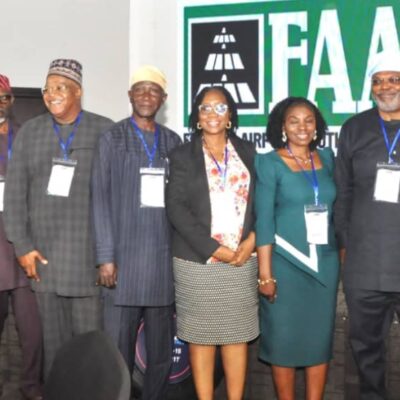BY OLAPEJU OLUBI
A strategic move designed to bolster climate resilience in the South Eastern part of Nigeria is being championed by the Director General of the Nigerian Meteorological Agency (NiMet), Prof. Charles Anosike and the Managing Director of the South-East Development Commission (SEDC), Mr. Mark Okoye.
The two fusion of the two institutions will also improve climate disaster preparedness.
During a courtesy visit to NiMet headquarters on July 16, 2025, Mr. Okoye emphasised the commitment of President Bola Ahmed Tinubu’s administration to regional development, particularly through the establishment of commissions such as the SEDC.
He noted that the Commission is focused on driving reconstruction, rehabilitation, and infrastructure development in the region while also addressing ecological and climate-related challenges.
“Our goal is to collaborate with strategic institutions like NiMet to promote climate-resilient development.
“We must work together to de-risk economic sectors through proactive interventions and programs that address the growing climate vulnerabilities in our region”, Okoye stated.
In response, Prof. Anosike welcomed the partnership and highlighted NiMet’s track record in supporting regional development initiatives through the provision of weather and climate information.
He referenced the Agency’s ongoing collaboration with the North-East Development Commission as a model that could be replicated in the South-East.
“NiMet has the expertise and scientific tools to help identify climate vulnerabilities and implement effective mitigation strategies,” said Prof. Anosike.
“We are committed to providing early warning systems and weather prediction tools that can support livelihoods and reduce the impact of climate hazards such as flash floods, soil erosion, and heavy rainfall.”
He added that one immediate opportunity for collaboration is the downscaling of the Seasonal Climate Prediction (SCP), which could significantly benefit local farmers by enabling climate-smart agriculture and supporting food security in line with President Tinubu’s food systems security initiative.
“Empowering farmers with tailored, localized climate forecasts can improve agricultural productivity and resilience,” Anosike explained.
“We also need to invest in capacity building—through sensitization and advocacy—so communities can access and use climate information to make informed decisions.”
Both leaders agreed to formalize their collaboration by signing a Memorandum of Understanding (MoU) without delay.
The MoU will serve as a foundation for future joint projects, facilitate public-private partnerships, and align both agencies with the broader goals of national development and climate adaptation.
“As federal institutions, it is our duty to align efforts and resources in a way that ensures the safety, prosperity, and resilience of our communities,” they said in a joint consensus.
Olapeju is a journalist and aviation reporter.





